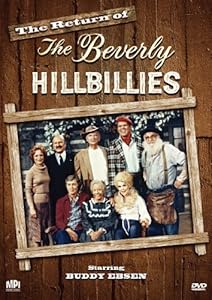
Passing judgment on Warner Archive's recent DVD release of the ninth and final season of the mid-80s to early-90s NBC sitcom "Night Court" was tough. This show in which comedian and magician Harry Anderson starred as an adorkable newly appointed youthful looking and acting New York City night court judge was a favorite when it premiered. Further, Judge Harold, a.k.a. Harry, T. Stone's true compassion and higher regard for justice than the law were awesome.
"Night Court" was still good when it approached the ten-year mark, but the energy and genuine quirkiness levels had abated. Further, it was MUCH better at nine years than most sitcoms are by their sixth or seventh seasons.
Indications that the "Night Court" writers were aware both that the series had lasted several years and likely was approaching the end of its well-deserved outstanding run included several characters commenting about how they had held their positions with the court for tenures that ran from seven-to-nine years. Additionally, the ninth season had very little focus on the zany defendants and interesting legal dilemmas that had set "Night Court" apart from other sitcoms.
Many favorite scenes from prior seasons opened with Harry lecturing the defendant and then showing said malfeasor in a manner that made the lecture anywhere from amusing to fall on the floor funny.
A purely illustrative example of that schtick would be Harry stating that sending back the food was the appropriate response if your meal was not prepared to your liking and then seeing a man in a suit standing next to a waiter who had spaghetti, meatballs, and marinara sauce dumped on his head.
An amusing bit in the ninth-season premiere that increased the sentence of "50 dollars and time served" that Harry issued to most marchers in the eight-year parade of prostitutes and minor criminals who stood before him to "55 dollars and time served" was another indication that "Night Court" was aware that it was beginning to become stale.
That two-part episode also has Harry and the court's defense attorney Christine Sullivan, played by Markie Post, dealing with the eighth season kiss that resulted from the long-standing sexual tension between them. The way that these two wholesome characters try to understand and communicate their feelings is as much fun as watching Mickey Rooney and Judy Garland in an Andy Hardy movie.
Those early ninth-season episodes also depict formerly lecherous prosecutor Dan Fielding, played by the three-time Emmy winner for that role John Larroquette, go completely mad in the wake of a massive betrayal. Larroquette does a thoroughly awesome job as a man beyond the edge of a nervous breakdown.
Hilarious storylines that follow Dan regaining his sanity involve his efforts to mend his philandering ways. Seeing him act more wholesomely than Harry and Christine and reject sexually aggressive advances is great fun for "Night Court" fans.
Larroquette additionally shines in an early episode in which he is reduced to using a marker-monogrammed shopping bag as a briefcase and serving as a prosecutor in a dog court in the wake of his breakdown.
Before shifting attention to other characters, the ode to Dan would not be complete without mentioning his hilarious bit regarding referring to defendants by insulting names. The purely illustrative example of this is Dan referring to a painter who is facing eviction from his rented studio solely for hiring prostitutes to pose nude for him as the artful lodger.
A less successful story arc involves the engagement and wedding of fan favorite large dim-witted bailiff Bull Shannon, played by Richard Moll.This plot line simply does not involve much real humor or suspense. The very nice message in the wedding ceremony and seeing Bull demonstrate unusual intelligence resolving numerous conflicts related to that event are nice touches.
The wedding does play a role in one of the season's best episodes that involves the wedding video that court clerk Mac Robinson, played by Charles Robinson, produces achieving midnight movie cult status. The hilarious moments in that episode are too good to ruin by stating more here.
An episode that is more true to the spirit of "Night Court" is another exceptional one. That offering has Harry administer justice in the case of the representative of a tiny European nation who has a history of abusing his diplomatic immunity.
The two-part series finale also does an overall nice job of providing a good farewell without undue sentiment. The intertwined resolutions of a multi-story arc regarding Christine's congressional campaign and Dan's feelings regarding his absurdly vigorous sexual past and his efforts to determine whether to embrace the darkside are entertaining.
A series finale plotline that involves Harry suddenly being in comically high demand despite the world having limited interest in him for nine years is a bit contrived, but his thought process throughout that period is very true to character and helps "Night Court" end on a satisfying note. Christine's sweet efforts to keep the party going and her sadness when closing time came around are especially satisfying.
In closing, the ninth season of "Night Court" meets the standard of being a sitcom that warrants adding to a DVD collection.
Anyone with questions or comments regarding "Night Court," or who wishes to appeal the judgment rendered above, is welcome to email me.









